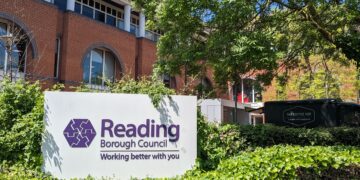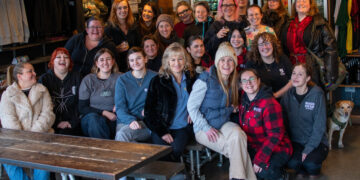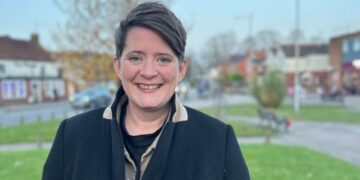THE UNIVERSITY of Reading is collaborating with a community group in an attempt to transform the UK’s food system so everyone has access to a healthy diet.
Led by Prof Carol Wagstaff, the Food Systems Equality (FoodSEqual) project has worked closely with people in Whitley, particularly through the Whitley Community Development Association, to build an understanding of people’s consumption habits.
One of the keys to the project’s success has been to include the people who the research will ultimately affect in the future.
Prof Wagstaff explained: “We’re really excited about this project. The key is that we are working with people in these communities, rather than doing things to them.
“They are intimately involved with developing policies, supply chains and food products – we hope to reach a point where people have a food system which works for them that they’ve had a part in designing.”
As part of the UKRI’s Transforming the UK Food System programme, FoodSEqual is one of four research consortia who benefited from its total £47.5 million pot.
The project works with people in four different communities in Plymouth, Brighton and Hove, Tower Hamlets and Whitley, Reading through teams based at the Universities of Plymouth, Kent, Sussex and Reading, as well as Cranfield University.
According to Prof Wagstaff, FoodSEqual has become increasingly relevant in recent times and she believes this isn’t going to change any time soon.
She said: “When we started to put this together, we weren’t in a cost of living crisis. Climate change is becoming much more obvious to people as we’re getting far more extreme weather events, and the consequences of Brexit mean that our supply chain is not necessarily quite as consistent as it used to be.
“We’ve had headlines about empty shelves and supermarkets struggling to fulfil their fresh produce requirements.
“On top of that, we’ve got the cost of living crisis and the war in Ukraine. Everything in people’s lives is getting more expensive, but it’s of course those from communities that are seldom heard who feel the pinch more than anyone else.”
Phase 1 of the project has involved benchmarking – building a picture of the national food landscape in disadvantaged communities and the impact of corporate, social and government frameworks on the UK’s food system.
One of the findings from the team’s scoping work has been a markedly “strong” level of aspiration to consume healthy diets, with people possessing the knowledge and willingness to do so.
Affordability and time pressures are two clear barriers to achieving this. For instance, those working multiple jobs will be unlikely to have the time to grow their own food.
The partnership between the University of Reading and the WCDA has seen the appointment of a team of community researchers, who actively take part in meetings and projects.
The Whitley researchers had the opportunity to go behind the scenes at the Food and Nutritional Sciences department on the Whiteknights campus, learning about how nutritional biomarkers help keep track of people’s dietary patterns.
The collaboration allows members of the team to pass the knowledge they learn onto the communities they are part of, while shining a light on people’s lived experiences and circumstances.
Phases 2 and 3 will see communities and businesses codevelop new supply chains using new and redesigned food products and policy frameworks, and finally be evaluated, adjusted and improved.
Last year, the Whitley Community Association’s food surplus project reported a marked increase in service users, seeing 1,840 people use its food bank in May 2022, compared to around 900 the previous year.
Volunteers collect food from its partners M&S, Morrisons, Aldi, Co-op, Brakes and Greggs for visitors to pick up five days a week.
Community development worker Maria Cox, said: “The difference a year has made is eye-opening.
“We have people who are out of work who access the service, but also families that do work who come to us and who have never asked for help before.
“And you only need to look at the cost of electricity, gas and food to understand the reason for the huge increase in project users.
“The reality of the cost of living crisis has hit home for everybody.”
Ms Cox added that there has been a particular demand for fruit and vegetables.
She said: “That’s what people want, the fruit and the veg. The government tells us it’s what we need to be eating, but it’s also expensive.
“It’s cheaper to go out and buy a bag of chips, beans and sausages for your children.”
























